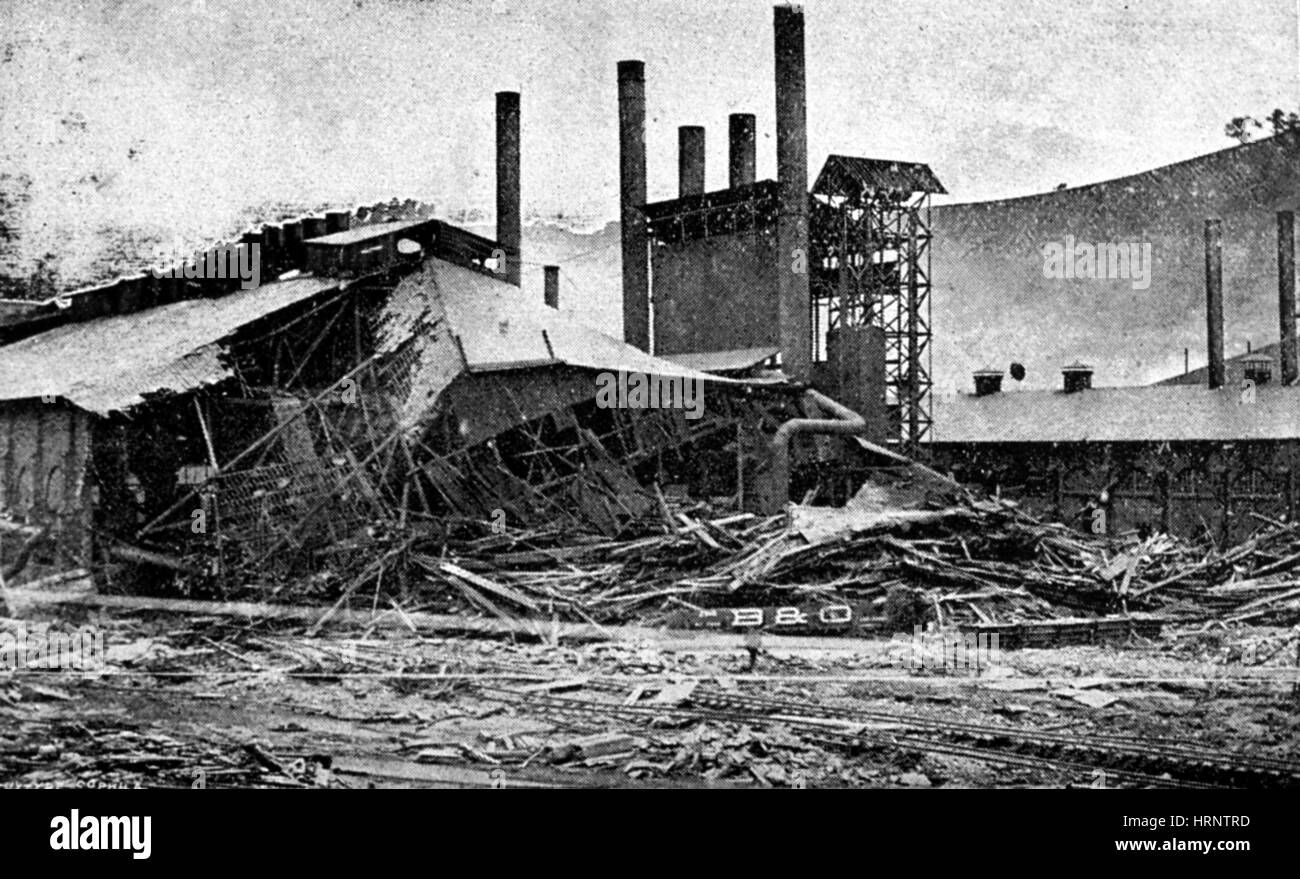Johnstown Flood, 1889

Image details
Contributor:
Science History Images / Alamy Stock PhotoImage ID:
HRNTRDFile size:
45.2 MB (1.5 MB Compressed download)Releases:
Model - no | Property - noDo I need a release?Dimensions:
5100 x 3096 px | 43.2 x 26.2 cm | 17 x 10.3 inches | 300dpiPhotographer:
Photo ResearchersMore information:
This image could have imperfections as it’s either historical or reportage.
The Johnstown Flood (or Great Flood of 1889 as it became known locally) occurred on May 31, 1889. It was the result of the catastrophic failure of the South Fork Dam situated on the Little Conemaugh River 14 miles upstream of the town of Johnstown, Pennsylvania, made worse by several days of extremely heavy rainfall. The dam's failure unleashed a torrent of 20 million tons of water from the reservoir known as Lake Conemaugh. The flood killed 2, 209 people and caused $17 million in damages. It was the first major disaster relief effort handled by the new American Red Cross, led by Clara Barton. Support for victims came from all over the United States and 18 foreign countries. After the flood, survivors suffered a series of legal defeats in their attempts to recover damages from the dam's owners, prompting the development in American law changing a fault-based regime to strict liability. Photo originally captioned: The aftermath of the Johnstown Flood. "Ruins of the Cambria Iron Works." In: "History of the Johnstown Flood", by Willis Fletcher Johnson, 1889.